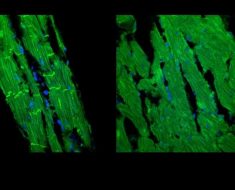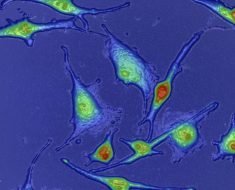Commonly used medications for high blood pressure and high blood lipids have substantial effects on protein biomarkers for cardiovascular disease, cancer and various inflammatory markers. This effect is evident also after taking genetics, lifestyle variables, age and sex into account. The study was conducted at Uppsala University and was recently published in Scientific Reports.
Antihypertensive treatment as well as lipid-lowering medication is often used for extensive periods of time, sometimes life-long, in many cases with few or none immediately noticeable side effects. The published results are based on large scale investigations of metabolic consequences and demonstrate for the first time the effect of common drugs on the plasma proteome in a cohort of more than 900 individuals.
“We have characterised circulating levels of more than 450 protein biomarkers in plasma and investigated in detail the differences in biomarker levels between individuals who use a certain drug and those who do not use that drug. We have also taken genetics, anthropometrics and lifestyle variables into account and have focused on the effects of the medication. We were surprised to find that some drugs had systemic effects on hundreds of biomarkers and other affected only one or two,” says Stefan Enroth, one of the researchers behind the study.
The researchers found unexpected effects on some biomarkers that are associated with increased risk of disease or a worse prognosis, but they also found positive effects.
“Our results emphasise the need of broad, large scale investigations of the effects of common medications on the human proteome. In order to understand all metabolic consequences of chronic medication, large studies are needed with patient groups that are monitored before, during and after introduction of specific drugs,” says Ulf Gyllensten, Professor of Medical Genetics at the Department of Immunology, Genetics and Pathology at Uppsala University.
Source: Read Full Article





